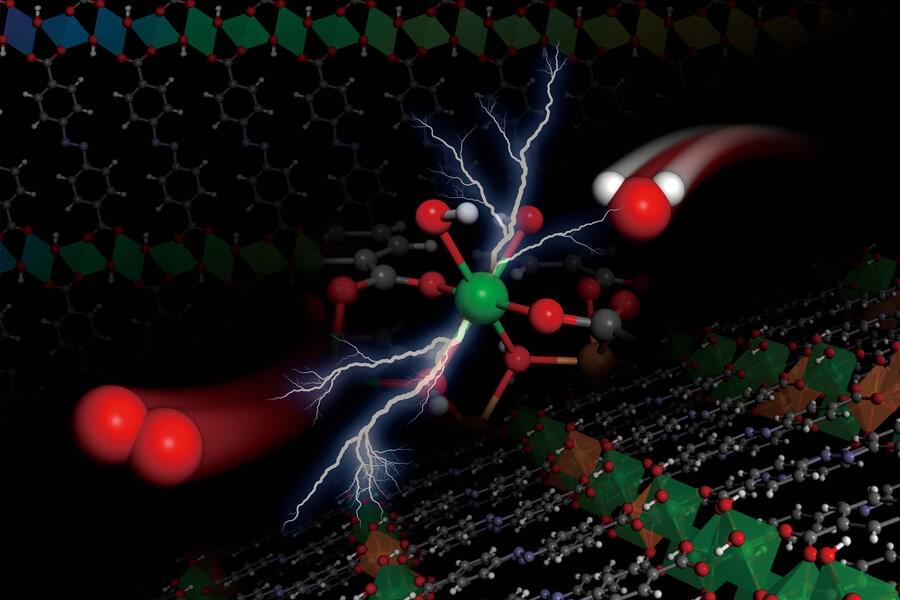An electrochemical reaction that splits apart water molecules to produce oxygen is at the heart of multiple approaches aiming to produce alternative fuels for transportation. But this reaction has to be facilitated by a catalyst material, and today’s versions require the use of rare and expensive elements such as iridium, limiting the potential of such fuel production.
Now, researchers at MIT and elsewhere have developed an entirely new type of catalyst material, called a metal hydroxide-organic framework (MHOF), which is made of inexpensive and abundant components. The family of materials allows engineers to precisely tune the catalyst’s structure and composition to the needs of a particular chemical process, and it can then match or exceed the performance of conventional, more expensive catalysts.
The findings are described today in the journal Nature Materials, in a paper by MIT postdoc Shuai Yuan, graduate student Jiayu Peng, Professor Yang Shao-Horn, Professor Yuriy Román-Leshkov, and nine others.










Comments are closed.